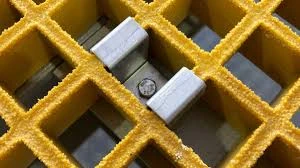
-
 Afrikaans
Afrikaans -
 Albanian
Albanian -
 Amharic
Amharic -
 Arabic
Arabic -
 Armenian
Armenian -
 Azerbaijani
Azerbaijani -
 Basque
Basque -
 Belarusian
Belarusian -
 Bengali
Bengali -
 Bosnian
Bosnian -
 Bulgarian
Bulgarian -
 Catalan
Catalan -
 Cebuano
Cebuano -
 China
China -
 China (Taiwan)
China (Taiwan) -
 Corsican
Corsican -
 Croatian
Croatian -
 Czech
Czech -
 Danish
Danish -
 Dutch
Dutch -
 English
English -
 Esperanto
Esperanto -
 Estonian
Estonian -
 Finnish
Finnish -
 French
French -
 Frisian
Frisian -
 Galician
Galician -
 Georgian
Georgian -
 German
German -
 Greek
Greek -
 Gujarati
Gujarati -
 Haitian Creole
Haitian Creole -
 hausa
hausa -
 hawaiian
hawaiian -
 Hebrew
Hebrew -
 Hindi
Hindi -
 Miao
Miao -
 Hungarian
Hungarian -
 Icelandic
Icelandic -
 igbo
igbo -
 Indonesian
Indonesian -
 irish
irish -
 Italian
Italian -
 Japanese
Japanese -
 Javanese
Javanese -
 Kannada
Kannada -
 kazakh
kazakh -
 Khmer
Khmer -
 Rwandese
Rwandese -
 Korean
Korean -
 Kurdish
Kurdish -
 Kyrgyz
Kyrgyz -
 Lao
Lao -
 Latin
Latin -
 Latvian
Latvian -
 Lithuanian
Lithuanian -
 Luxembourgish
Luxembourgish -
 Macedonian
Macedonian -
 Malgashi
Malgashi -
 Malay
Malay -
 Malayalam
Malayalam -
 Maltese
Maltese -
 Maori
Maori -
 Marathi
Marathi -
 Mongolian
Mongolian -
 Myanmar
Myanmar -
 Nepali
Nepali -
 Norwegian
Norwegian -
 Norwegian
Norwegian -
 Occitan
Occitan -
 Pashto
Pashto -
 Persian
Persian -
 Polish
Polish -
 Portuguese
Portuguese -
 Punjabi
Punjabi -
 Romanian
Romanian -
 Russian
Russian -
 Samoan
Samoan -
 Scottish Gaelic
Scottish Gaelic -
 Serbian
Serbian -
 Sesotho
Sesotho -
 Shona
Shona -
 Sindhi
Sindhi -
 Sinhala
Sinhala -
 Slovak
Slovak -
 Slovenian
Slovenian -
 Somali
Somali -
 Spanish
Spanish -
 Sundanese
Sundanese -
 Swahili
Swahili -
 Swedish
Swedish -
 Tagalog
Tagalog -
 Tajik
Tajik -
 Tamil
Tamil -
 Tatar
Tatar -
 Telugu
Telugu -
 Thai
Thai -
 Turkish
Turkish -
 Turkmen
Turkmen -
 Ukrainian
Ukrainian -
 Urdu
Urdu -
 Uighur
Uighur -
 Uzbek
Uzbek -
 Vietnamese
Vietnamese -
 Welsh
Welsh -
 Bantu
Bantu -
 Yiddish
Yiddish -
 Yoruba
Yoruba -
 Zulu
Zulu
fiberglass pipes and fittings for ship building
Fiberglass Pipes and Fittings for Shipbuilding
The shipbuilding industry has made remarkable advances in materials and technology over the years, and one significant innovation is the use of fiberglass pipes and fittings
. These components have gained popularity for their unique properties, making them an ideal choice for various applications in marine vessels.Fiberglass, or glass-reinforced plastic (GRP), is composed of a resin matrix reinforced with glass fibers. This combination results in a lightweight yet incredibly strong material, which is crucial for shipbuilding. One of the primary advantages of fiberglass pipes and fittings is their corrosion resistance. Unlike traditional metal pipes, fiberglass does not corrode when exposed to saltwater, chemicals, or extreme weather conditions. This property significantly extends the lifespan of marine structures, reducing maintenance costs and improving safety.
Furthermore, fiberglass is not only resistant to corrosion but also boasts excellent thermal insulation properties. This helps in maintaining stable temperatures within the ship, enhancing the performance of onboard systems. The lightweight nature of fiberglass pipes and fittings also promotes a reduction in overall vessel weight, leading to improved fuel efficiency and increased payload capacity.
fiberglass pipes and fittings for ship building

The versatility of fiberglass allows for the manufacturing of pipes and fittings in various shapes and sizes, tailored to specific needs and applications. From water supply lines to drainage and waste systems, fiberglass components can be customized to suit different requirements. Moreover, installation of fiberglass pipes is typically faster and easier than traditional materials, which translates to reduced labor costs and shorter construction times.
Another important aspect is the environmental impact. Fiberglass manufacturing processes are generally less harmful to the environment compared to metal production. Additionally, fiberglass offers the potential for recyclability, further enhancing its appeal in a world increasingly focused on sustainable practices.
In conclusion, fiberglass pipes and fittings represent a significant advancement in materials for shipbuilding. Their excellent resistance to corrosion, lightweight nature, thermal insulation properties, and customization options make them a favorite among shipbuilders. As the maritime industry continues to evolve, the adoption of innovative materials like fiberglass will play a crucial role in enhancing vessel performance and sustainability. Embracing these advancements will undoubtedly pave the way for a more efficient and environmentally friendly future in shipbuilding.









